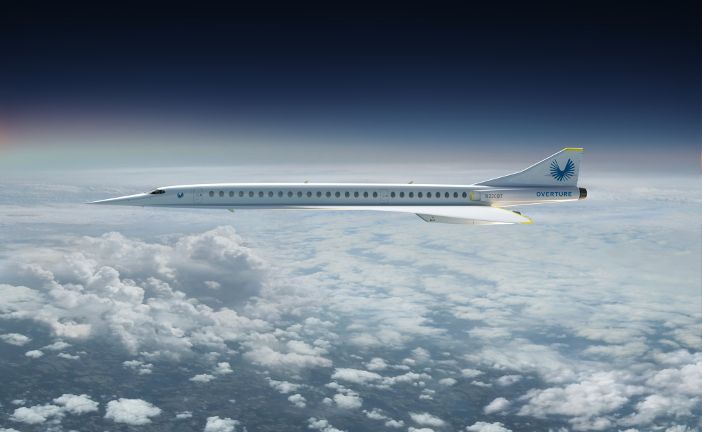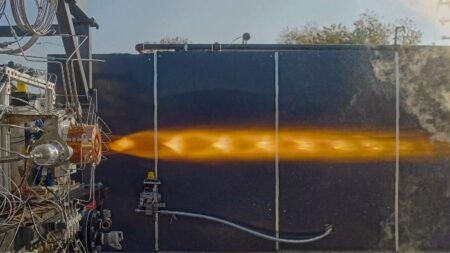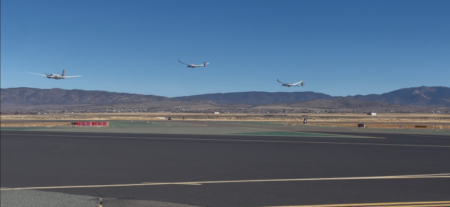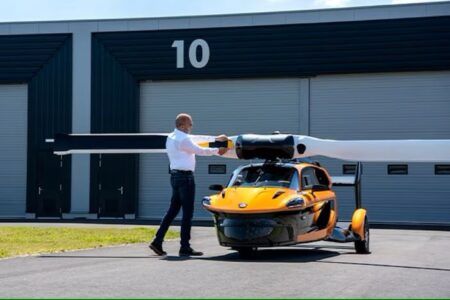US-based aerospace developer Boom Supersonic is to flight test its XB-1 demonstrator in the supersonic corridor stretching across the Mojave Desert in California.
Boom has selected testing services provider Flight Research Incorporated (FRI) to support the flight testing, which is expected to run this year. FRI is to provide a T-38 Talon, a two-seat, twin-jet supersonic trainer for pilot proficiency training and as a chase aircraft during the XB-1’s flight test program.
Boom will also sub-lease a portion of the FRI Headquarters at the Mojave Air and Space Port, which is located beneath the corridor, to build a fully instrumented flight test control room and an XB-1 simulator room with cockpit and visual displays there.
In addition, the agreement includes the use of one of several FRI hangars at the Space Port, which will be used to reassemble XB-1 after transport to Mojave and immediately begin testing.
Boom founder and CEO Blake Scholl said, “Flight Research is providing essential equipment and superior facilities at the Mojave Air and Space Port to enable us to finalize and fly XB-1.
“We specifically selected the T-38 for our flight test program because of its similar flight characteristics and ability to chase XB-1 through low speed supersonic flight. This is an exciting time at Boom and we’re glad to have a partner in FRI to help us get to the finish line.”
William Korner, chairman and CEO at FRI said, “As a rapidly growing flight test company, Flight Research is looking forward to working with Boom. This partnership fits perfectly within our mission to advance the safety and capability of the aerospace industry.
“This will be a new supersonic testing project for us. We couldn’t be more excited to welcome Boom to this historic airfield and to outfit a space to meet their needs. We look forward to contributing to the return of supersonic commercial air travel.”
Boom is currently building XB-1, a demonstrator that will help refine the design and engineering of Overture, Boom’s proposed 55-seat supersonic commercial airliner. XB-1 shares key technologies with Overture, such as the use of carbon fiber composites and a delta wing design.
The Overture aircraft will have a cruise speed Mach 2.2 (2,300 km/h) with a range of 8,300km and is planned to enter into service in 2025
FRI, in conjunction with one other Mojave AERO Group Subsidiary, The International Flight Test Institute, operates more than 40 aircraft comprised of multiple fleets. Aircraft types the company operate range from flight test-instrumented supersonic trainers, corporate and military training jets, turboprops and helicopters.
For more detail on Boom’s XB-1 testing and the development of Overture, go here





